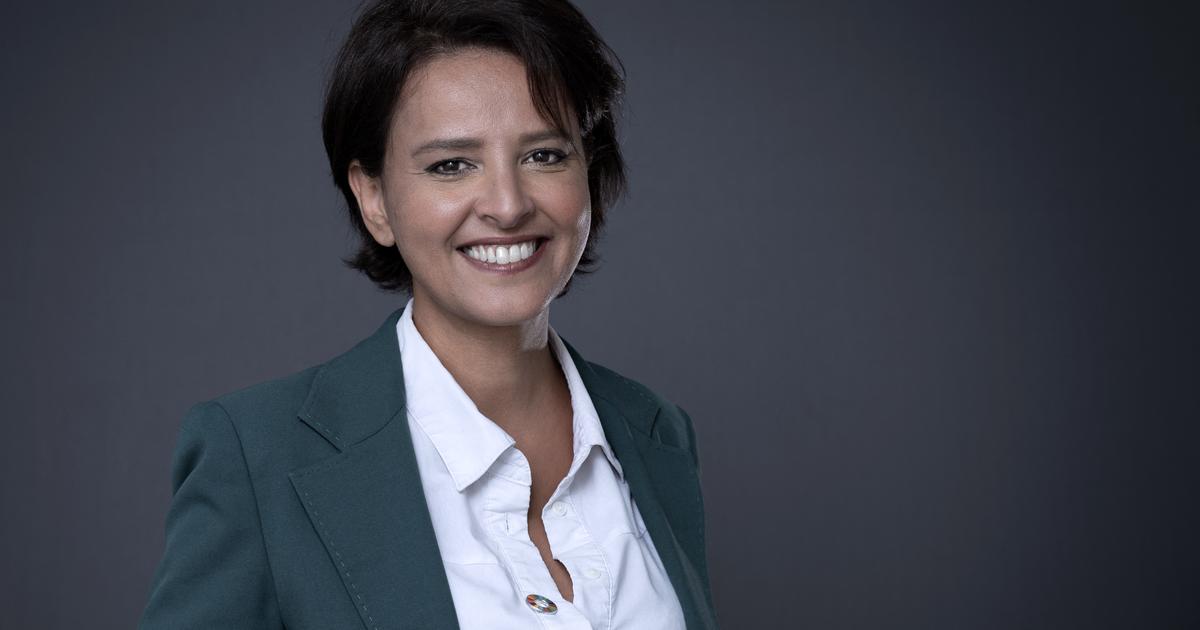Enlarge image
Not just operating computers, but reflecting on your own actions: schoolgirls in digitally supported lessons
Photo: Friso Gentsch / DPA
An eight-year-old girl dies in a TikTok challenge: when she tries to strangle herself for as long as possible while recording with her smartphone, she overestimates herself.
In London, 12-year-old Archie falls into a coma after allegedly also taking part in an internet test of courage.
Unfortunately, these are no longer isolated cases.
Calls for better social media regulation are growing fast, but they are addressing the symptoms, not the causes.
The problem is not that a lot of nonsense is spread through digital media - the problem is that our society has been dealing with these media almost naively to this day and is euphorically celebrating the new possibilities.
Critics are quickly seen as apocalyptic.
Wrongly so, because their main concern is to make the possibilities and limits of digital media visible and to weigh them up.
Many other problems hide behind the deaths: steadily increasing cyberbullying, a worrying decline in learning and reading performance, the increase in loneliness - to name just a few.
The causes lie in the length of time digital media are used, which is constantly increasing and begins earlier and earlier in life, and in their potential for distraction, which leads to targeted manipulation through skillful programming.
more on the subject
Learning level survey in Hamburg: Large gaps among students after the Corona shutdown
From a pedagogical point of view, there is a need for action here - but less with regard to the question of how much digital media are now used in the classroom.
We've known for a long time: Bad lessons don't get better with digital media, only good lessons can benefit from them.
Instead, we have to pay much more attention to media education than before.
It is the decisive factor so that young and old not only use the technology, but the technology serves them.
Digital media are permanently changing the way people feel, think and act and thus influence the values and norms that exist in a society - and thus also the way in which family, friendship and democracy are lived.
The digitization trap
Of course, digital media also offer opportunities in the classroom: for diagnosis, feedback and the differentiation of exercise phases.
Digital media also open up new possibilities outside of school, such as more efficient communication, better participation and more transparent processes.
But if you only organize parents’ evenings digitally out of convenience, chat with your girlfriend for hours on end instead of visiting her, and only find out about politics on social media and no longer read the newspaper, you are falling into a digitization trap.
All these digital possibilities generate a double problem.
First, these options can only be used when humans bring them to life.
This requires media competence that not only includes dealing with digital media, but above all a strong ability to take criticism.
It's about reflecting on how I deal with digital media: what does the medium I use do to me?
Secondly, every possibility created by digital media always means that, sooner or later, an option from the pre-digital era is no longer available.
Libraries are increasingly being digitized, making it much faster to search.
However, the free rummaging around, meeting fellow students and meeting people by chance are lost.
All of this may sound romantic, but such processes are particularly educational.
So what has to happen?
Schools in particular need concepts for well-founded media education – but so do universities and other institutions.
Not everything that can be digitized should be digitized blindly.
Instead, three basic principles must be observed:
Media education must always critically and constructively question every use of media – whether analog or digital.
Technology is never all good or bad: it is we humans who use technology for good or for bad.
Media education must keep an eye on the temporality of education, so it must not start too early or too late.
This applies, for example, to the question of when to talk to children about cyberbullying, sexting and the like: too early can have just as serious consequences as too late.
In addition, media education must keep the balance: only if there is a balanced relationship and learners, for example, experience the possibilities of digital reading as well as those of analogue reading, can they develop media competence.
However, the decisive factor is always the professionalism of the teachers: if teachers write private WhatsApp messages during school hours, then this is not only bad teaching, but a declaration of pedagogical bankruptcy.









